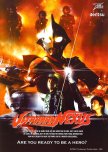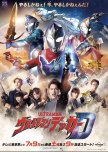 A Brief History of Japanese Dramas
A Brief History of Japanese Dramas - Português (Portugal)
- English
- magyar / magyar nyelv
- dansk
- Título original: ウルトラマンティガ
- Também conhecido como: Urutoraman Tiga
- Roteirista: Hasegawa Keiichi, Konaka Chiaki, Kawasaki Minoru, Takegami Junki, Ota Ai, Migita Masakazu, Uehara Shozo
- Diretor: Akio Jissoji, Matsubara Shingo, Ishii Teruyoshi
- Gêneros: Ação, Tokusatsu, Ficção científica
Elenco e Créditos
- Nagano HiroshiMadoka DaigoPapel Principal
- Yoshimoto TakamiYanase RenaPapel Principal
- Otaki AkitoshiMunakata SeiichiPapel Secundário
- Kagemaru ShigekiShinjo TetsuoPapel Secundário
- Masuda YukioHorii MasamiPapel Secundário
- Furuya YoichiYazumi JunPapel Secundário
Resenhas

TAKE ME HIGHER!
It's taken me way too long to finish this series and I wanna apologise to my friend Garasharp for that. After small side steps into a few short-lived co-produced Ultra shows, Ultraman returned to his full Japanese roots with Ultraman Tiga marking the debut of a new full-fledged Ultra series and the first full Heisei series.After a franchise hiatus of over 15 years, set in a universe different from all previous series and updated with a new look and feel. Ultraman Tiga is basically one of, if not, the defining Ultra show. You don't need prior knowledge of any of the previous shows to get Tiga, it acts as a fresh start for the series but remains faithful and familiar to the long-time fans.
Where Tiga shines brightest is in its cast of likeable lead characters, raw emotional impact and breathtaking production values. The storytelling is up to the usual Tsuburaya quality with seemingly every episode, for better or worse, developing the characters and their own motivations over the course of the 52-episode run. The slow-burn love story between Daigo and Rena is extremely worthwhile and rewarding for those invested in the series, and the rest of the supporting cast is equally fantastic although Horii can be extremely hit or miss with his comedic antics even then he gets a satisfying and conclusive character arc.
Wildly unpredictable at times with a multitude of excellent episodes under its belt (and yes even some rather dire ones), the series is never lazy. It continues to bring out new and imaginative monsters without feeling the need to recycle and even when an old monster shows up again, it's not without reason.
Unfortunately trying to watch this series in its original format is made nearly impossible due to a long-standing and extremely strict contract with lead actor Hiroshi Nagano's talent agency, Johnny & Associates. There's a great video on why this happened by Vintage Henshin which you should all watch. It's a real shame that due to this, Tiga has been plagued by a lack of reruns, botched home video releases and even suffering from extreme cuts or outright being skipped due to the use of Nagano's own likeness.
The show's production is essentially flawless, the top-notch suitmation work combined with tight direction, scripts and fantastic musical score by Tatsumi Yano. But it's the use of Take Me Higher for the series' opening and often used to accompany the final battles of the episodes where it really gets your heart pumping, unfortunately, it's another casualty of Johnny & Associates' rules due to the fact that Nagano is a member of the band, V6, who perform the song.
There are so many stand-out episodes from the show it's hard to narrow it down to a list of favourites or best episodes, although I will attempt it:
1. The Ultra Star
2. One Vanishing Moment
3. The One Who Inherits the Shadows
4. Zelda's Point Defences
5. Dear Mr Ultraman
6. Take Me Higher! / Master of Darkness / To the Shining Ones
7. The Released Target
8. Second Contact
9. Resurrected Friend
10. Hana
The series has range and it uses it superbly well, be it introducing the first fully evil Ultra of the franchise with Evil Tiga, a self-indulgent love letter to the founding father of Tsuburaya Productions telling a story of how he met the original Ultraman or a scientist trying to live with the grief of his creation that killed his own daughter. There's a multitude of different styles and genres present in this show, catering to everyone and anyone. Even the more kid-focused stories while being the weaker ones are more than worth a look for some rather decent kid acting and storylines.
Ultraman Tiga on the whole distils everything and anything you could want or need out of an Ultraman show. Pure glowing hope and love in the face of Lovecraftian cosmic evil. No matter how dire the situation, it never relents in its depiction of its titular character as a source of optimism. My love for Tokusatsu as a whole can more than be summed up with my love for this show.
Esta resenha foi útil para você?

ULTRAMAN TIGA - Giant of Light, Take Me Higher!
Ultraman Tiga finalizado e que temporada é essa...Acho que o que mais me pegou em Tiga, além da ótima música, boas lutas e personagens bem desenvolvidos foi a sua mensagem.
Ultraman são alienígenas que defendem a Terra, mas que não interferem em ações humanas, apenas guiam os seres humanos para um futuro melhor, ou como eles colocam na série, "pra se tornar luz".
Tornar-se luz no caso tem vários significados, mas o principal é que "ser luz" é ser alguém na qual a escuridão, os lados sombrios da nossa vida não nos guiam. E isso é algo que o seriado pondera bastante.
Será que a humanidade está destinada pra repetir os mesmos erros de seus antepassados? Será que a raça humana PRECISA do Ultraman pra evoluir e se tornar luz?
Tiga tem provavelmente uma das perspectivas mais otimistas que eu já vi, tomando um lado idealista onde o seriado tem fé que a humanidade, por mais que esteja avançando tecnologicamente, explorando o espaço, expandindo seu arsenal, que tudo isso esteja sendo feito para o bem, e essa esperança é algo que contagia, principalmente no final.
Como próprio Daigo diz, os seres humanos tem o poder de tornarem-se luz, e os Ultraman apenas estão pra guiá-los no caminho certo. Por mais que esse tema não seja tão bem explorado, na sua reta final e em seus melhores episódios Tiga para pra refletir sobre o potencial humano, nossas falhas e acertos e principalmente o que podemos alcançar.
Esta resenha foi útil para você?

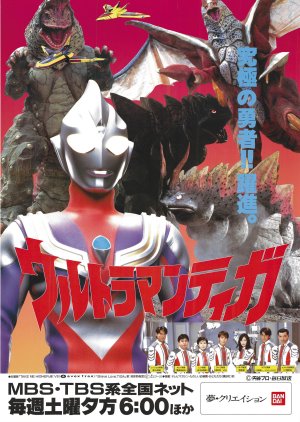




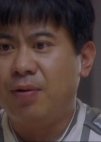

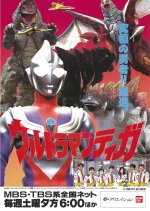
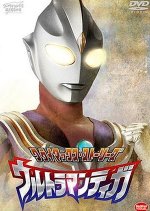
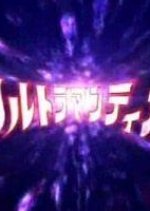
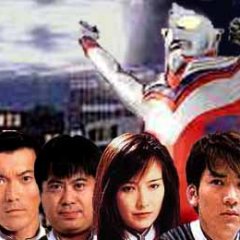
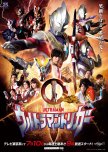
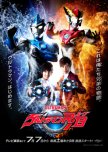




![Kaiju,Tokusatsu,Mecha,etc* [Multi-List]](https://i.mydramalist.com/aEgymt.jpg)
![Kaiju,Tokusatsu,Mecha,etc* [Multi-List]](https://i.mydramalist.com/Zbd0q_4t.jpg)
![Kaiju,Tokusatsu,Mecha,etc* [Multi-List]](https://i.mydramalist.com/YAZ2gt.jpg)
![Kaiju,Tokusatsu,Mecha,etc* [Multi-List]](https://i.mydramalist.com/9xYJyt.jpg)
![Kaiju,Tokusatsu,Mecha,etc* [Multi-List]](https://i.mydramalist.com/xbjEr_4t.jpg)

